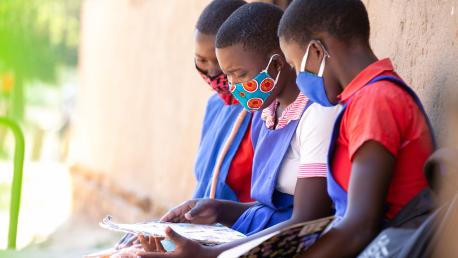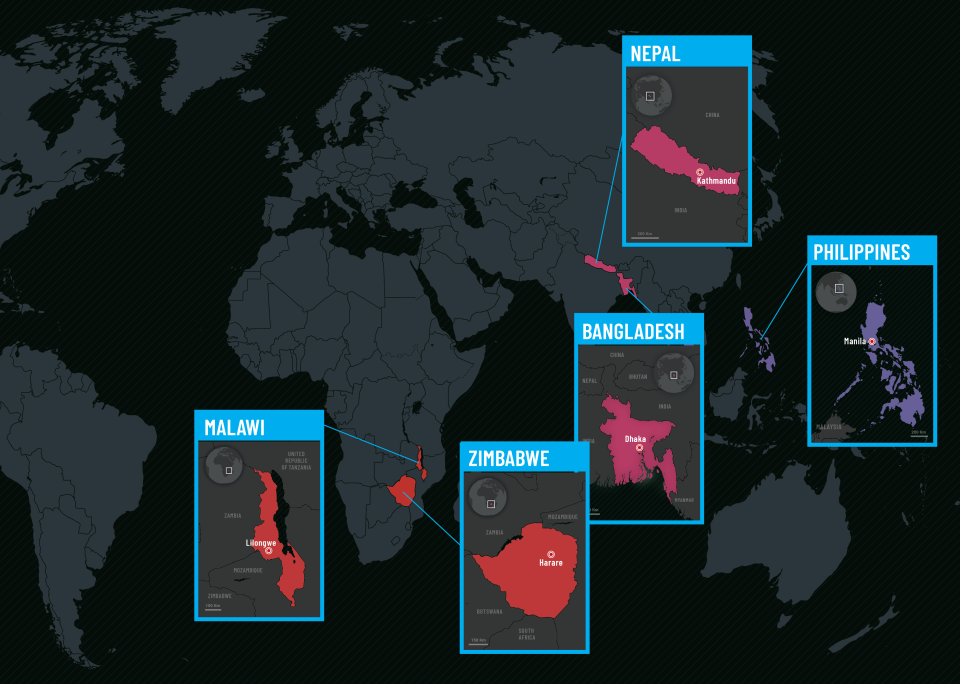
Eli Lilly and Company & UNICEF: Strengthening health care for young people living with and at risk of noncommunicable diseases

Partner since 2022
Eli Lilly and Company and UNICEF are working together to change the global landscape of childhood noncommunicable diseases with a focus on prevention, detection and treatment.
Lilly has committed $14.4 million through 2025 to help reach 10 million children and adolescents as part of UNICEF’s lifesaving work to address NCD risk factors, strengthen health systems, and enhance the ability of health care workers to care for patients in Bangladesh, Malawi, Nepal, the Philippines and Zimbabwe. The countries were selected based on the diversity of geography and the potential to strengthen country-level health systems and models that provide care and support for children and adolescents with chronic conditions.
These efforts will focus on building awareness in each country on the importance of treating childhood NCDs within national, regional and global health and multisectoral frameworks, and on the need to address key environmental and behavioral NCD factors that manifest in childhood to avert the potential development of NCDs later in life.
Interventions in the five countries will include strengthening data and health information systems for NCDs; establishing and strengthening prevention, care and treatment of NCDs within primary health care and referral facilities (e.g., capacity building of local health care providers including training, mentorship, remote patient monitoring, etc.); and capacity building of service providers for the screening and improved management and treatment of NCDs.

“No child should die from a treatable disease because of inadequate care or treatment. Noncommunicable diseases undermine a child’s right to health, nutrition, education and play,” said Karin Hulshof, Deputy Executive Director, UNICEF. “We are grateful to Lilly for this collaboration to help strengthen health care systems children rely on and ensure health care workers are well-equipped and confident in providing care and treatment to children living with NCDs.”
The Global NCD Landscape
NCDs are a growing threat to children and adolescents, undermining their right to health, nutrition, education and play. Each year, about 1.2 million children and adolescents-aged under 20 -die from often treatable NCDs, such as congenital & rheumatic heart disease, asthma, and cancer, accounting for 13% of overall mortality in this age group.
Historically, global health efforts have focused on combatting infectious diseases, which contributed to a large share of mortality. This resulted in health systems and public health responses that are ill prepared to detect and provide long-term treatment and care required for NCDs in childhood and adolescence. As countries work to achieve Sustainable Development Goal (SDG)3 –ensuring healthy lives and well-being at all ages, addressing NCDs is essential so no child or adolescent is left behind in the global effort to lower mortality rates. Many children and adolescents in low-and middle-income countries do not have access to life-saving treatments and suffer from premature and preventable deaths.
UNICEF is committed to investing in communities in fragile settings and equipping frontline workers with the tools, technology, training and knowledge they need to improve the quality, efficiency and accessibility of local health systems to create long-term, scalable, sustainable change.